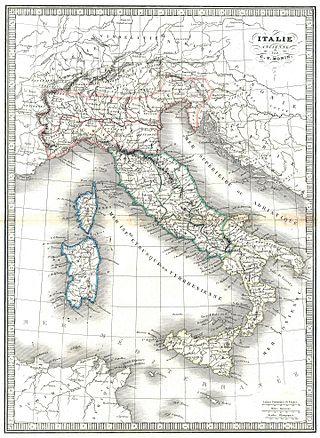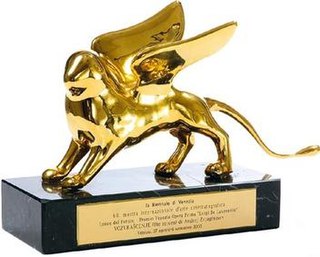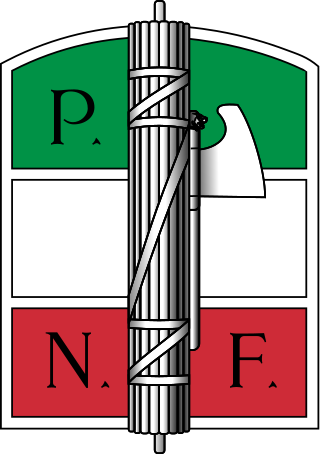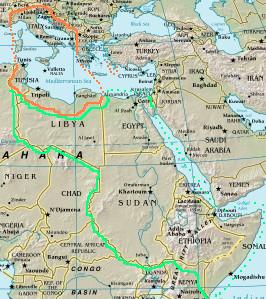
The Venice Film Festival or Venice International Film Festival is an annual film festival held in Venice, Italy. It is the world's oldest film festival and one of the "Big Five" International film festivals worldwide, which include the Big Three European Film Festivals, alongside the Toronto Film Festival in Canada and the Sundance Film Festival in the United States.These festivals are internationally renowned for giving creators the artistic freedom to express themselves through film. In 1951, FIAPF formally accredited the festival.

The Axis powers, originally called the Rome–Berlin Axis and also Rome–Berlin–Tokyo Axis, was a military coalition that initiated World War II and fought against the Allies. Its principal members were Nazi Germany, the Kingdom of Italy and the Empire of Japan. The Axis were united in their far-right positions and general opposition to the Allies, but otherwise lacked comparable coordination and ideological cohesion.

Victor Emmanuel III, born Vittorio Emanuele Ferdinando Maria Gennaro di Savoia, was King of Italy from 29 July 1900 until his abdication on 9 May 1946. A member of the House of Savoy, he also reigned as Emperor of Ethiopia (1936–41) and King of the Albanians (1939–43) following the Italian invasions of Ethiopia and Albania. During his reign of nearly 46 years, which began after the assassination of his father Umberto I, the Kingdom of Italy became involved in two world wars. His reign also encompassed the birth, rise, and fall of the Fascist regime in Italy.

The Venice Biennale is an international cultural exhibition hosted annually in Venice, Italy by the Biennale Foundation. The biennale has been organised every year since 1895, which makes it the oldest of its kind. The main exhibition held in Castello, in the halls of the Arsenale and Biennale Gardens, alternates between art and architecture. The other events hosted by the Foundation—spanning theatre, music, and dance—are held annually in various parts of Venice, whereas the Venice Film Festival takes place at the Lido.

Italo Balbo was an Italian fascist politician and Blackshirts' leader who served as Italy's Marshal of the Air Force, Governor-General of Italian Libya and Commander-in-Chief of Italian North Africa. Due to his young age, he was sometimes seen as a possible successor to dictator Benito Mussolini.

This article covers the history of Italy as a monarchy and in the World Wars. The Kingdom of Italy was a state that existed from 17 March 1861, when Victor Emmanuel II of Sardinia was proclaimed King of Italy, until 2 June 1946, when civil discontent led to an institutional referendum to abandon the monarchy and form the modern Italian Republic. The state resulted from a decades-long process, the Risorgimento, of consolidating the different states of the Italian Peninsula into a single state. That process was influenced by the Savoy-led Kingdom of Sardinia, which can be considered Italy's legal predecessor state.

The Golden Lion is the highest prize given to a film at the Venice Film Festival. The prize was introduced in 1949 by the organizing committee and is now regarded as one of the film industry's most prestigious and distinguished prizes. In 1970, a second Golden Lion was introduced; this is an honorary award for people who have made an important contribution to cinema.

Emilio De Bono was an Italian general, fascist activist, marshal, and member of the Fascist Grand Council. De Bono fought in the Italo-Turkish War, the First World War and the Second Italo-Abyssinian War. He was one of the key figures behind Italy's anti-partisan policies in Libya, such as the use of poison gas and internment camps, which resulted in the deaths of tens of thousands of civilians.

The Axis leaders of World War II were important political and military figures during World War II. The Axis was established with the signing of the Tripartite Pact in 1940 and pursued a strongly militarist and nationalist ideology; with a policy of anti-communism. During the early phase of the war, puppet governments were established in their occupied nations. When the war ended, many of them faced trial for war crimes. The chief leaders were Adolf Hitler of Nazi Germany, Benito Mussolini of Fascist Italy, and Hirohito of Imperial Japan. Unlike what happened with the Allies, there was never a joint meeting of the main Axis heads of government, although Mussolini and Hitler met on a regular basis.

The National Fascist Party was a political party in Italy, created by Benito Mussolini as the political expression of Italian fascism and as a reorganisation of the previous Italian Fasces of Combat. The party ruled the Kingdom of Italy from 1922 when Fascists took power with the March on Rome until the fall of the Fascist regime in 1943, when Mussolini was deposed by the Grand Council of Fascism. It was succeeded, in the territories under the control of the Italian Social Republic, by the Republican Fascist Party, and ultimately dissolved at the end of World War II.

Libya was a colony of Fascist Italy located in North Africa, in what is now modern Libya, between 1934 and 1943. It was formed from the unification of the colonies of Cyrenaica and Tripolitania, which had been Italian possessions since 1911.

Imperialism, colonialism and irredentism played an important role in the foreign policy of Fascist Italy. Among the regime's goals were the acquisition of territory considered historically Italian in France and Yugoslavia, the expansion of Italy's sphere of influence into the Balkans and the acquisition of more colonies in Africa. The pacification of Libya (1923–32), the invasion of Ethiopia (1935–36), the invasion of Albania (1939), the invasion of France (1940), the invasion of Greece (1940–41) and the invasion of Yugoslavia (1941) were all undertaken in part to add to Italy's national space. According to historian Patrick Bernhard, Fascist Italian imperialism under Benito Mussolini, particularly in Africa, served as a model for the much more famous expansionism of Nazi Germany in Eastern Europe.

The Italian colonial empire, also known as the Italian Empire between 1936 and 1941, was founded in Africa in the 19th century and it comprised the colonies, protectorates, concessions and dependencies of the Kingdom of Italy. In Africa, the colonial empire included the territories of present-day Libya, Eritrea, Somalia and Ethiopia ; outside Africa, Italy possessed the Dodecanese Islands, Albania and also had a concession in Tianjin, China.

Benito Amilcare Andrea Mussolini was an Italian dictator who founded and led the National Fascist Party (PNF). He was Prime Minister of Italy from the March on Rome in 1922 until his deposition in 1943, as well as Duce of Italian fascism from the establishment of the Italian Fasces of Combat in 1919 until his summary execution in 1945 by Italian partisans. As dictator of Italy and principal founder of fascism, Mussolini inspired and supported the international spread of fascist movements during the inter-war period.

Initially, Fascist Italy did not enact comprehensive racist policies like those policies which were enacted by its World War II Axis partner Nazi Germany. Italy's National Fascist Party leader, Benito Mussolini, expressed different views on the subject of race over the course of his career. In an interview conducted in 1932 at the Palazzo di Venezia in Rome, he said "Race? It is a feeling, not a reality: ninety-five percent, at least, is a feeling. Nothing will ever make me believe that biologically pure races can be shown to exist today".
The "9th" annual (void) Venice International Film Festival was held from 30 August to 14 September 1941. Together with the 1940 and 1942 it is 'considered void- as if they did not happen', as the events were carried out in places far away from the Lido, and very few countries participated due to World War II, with an absolute monopoly of institutions and directors that were members of the fascist Rome-Berlin axis. Additionally, a strong fascist political meddling from the Italian fascist government under Benito Mussolini had led to Italy experiencing a period of cultural depression oppressed by fascist propaganda.
The "10th" annual (void) Venice International Film Festival was held from 30 August to 5 September 1942. The events were hosted at places far away from the Lido and very few countries participated due to World War II and directors that were members of the Rome-Berlin axis. Additionally, a strong fascist political meddling from the Italian fascist government under Benito Mussolini had led to Italy experiencing a period of cultural depression oppressed by fascist propaganda. It is the last edition before the suspension for the Second World War.
The 29th annual Venice International Film Festival was held from 25 August to 7 September 1968.

Fascist Italy is a term which is used to describe the Kingdom of Italy when it was governed by the National Fascist Party from 1922 to 1943 with Benito Mussolini as prime minister and dictator. The Italian Fascists imposed totalitarian rule and they also crushed political opposition, while they simultaneously promoted economic modernization, traditional social values and a rapprochement with the Roman Catholic Church.
Egisto Perino was an Italian Air Force general during World War II.















